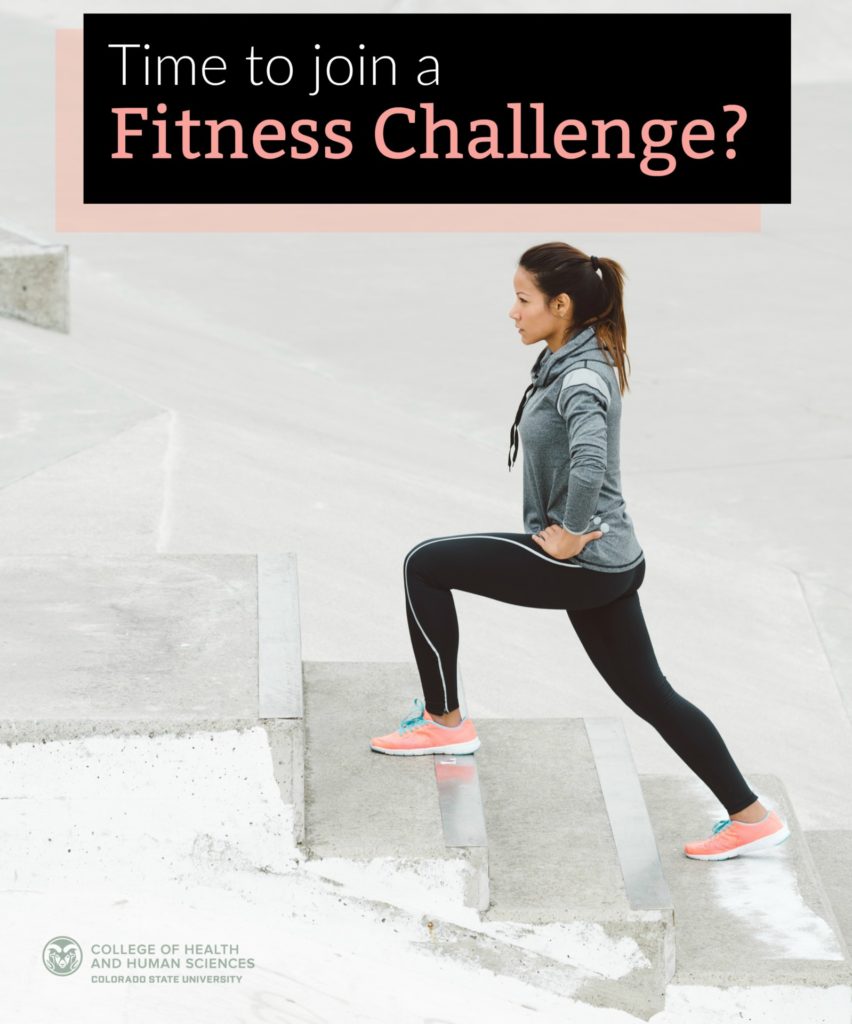By Kimberly Burke
Scrolling through your Facebook, Instagram or Pinterest feeds, you have probably seen an advertisement or had friends highlighting some new fitness challenge. Maybe it was a 30-day challenge, a Bust a Gut workout, the Little Black Dress Challenge, or countless others. There are mixed messages from these month long workouts and we are going to break down some of the do and don’ts when joining a fitness challenge.
Can anyone join a fitness challenge?
 Probably the most vague and dreaded answer is, it depends. Universally speaking, no, not everyone should join a fitness challenge, but a majority of people likely can. Those who should steer clear are those dealing with a current injury, illness, or who question if they should be getting medical clearance before exercise. For beginners or those returning to exercise after a break, you want to avoid the risk of injury. For a majority of people, though, it would be fine to start a challenge, and the beauty is there are so many different ones that you can pick what interests you. Trust your body and your judgement in picking what will be right for you.
Probably the most vague and dreaded answer is, it depends. Universally speaking, no, not everyone should join a fitness challenge, but a majority of people likely can. Those who should steer clear are those dealing with a current injury, illness, or who question if they should be getting medical clearance before exercise. For beginners or those returning to exercise after a break, you want to avoid the risk of injury. For a majority of people, though, it would be fine to start a challenge, and the beauty is there are so many different ones that you can pick what interests you. Trust your body and your judgement in picking what will be right for you.
How do I do a fitness challenge?
Finding the challenge you are most interested in is key, and perhaps gathering some support by asking friends or family to do it with you. Fitness challenges are great to act as a springboard into becoming more active, or a great way to break up your workout routine. Make sure to look for those with clear directions and as many visual aids as possible to be sure you are doing the exercise correctly. Then, follow along. Many are outlined to be user friendly and guide you through the different days or weeks of exercise. Just remember that you do not have to do everything or follow it to a T.
If an exercise does not feel good to you, you can pass on it. In addition, if you miss one day, do not consider the whole challenge blown. Some consider an advantage to a 30-day challenge is the short timeframe, but we all know life is busy and there are days that just get away from us. Pick back up where you left off rather than skipping to the next workout, and push your end date back. It does not mean you failed. It means you listened to your body, and you are still capable of finishing the challenge.
What happens when the challenge is over?
Congratulations are in order after completing the challenge, but now what? These challenges are a great springboard into activity, so don’t let your fitness end when the challenge does. Try to learn from the workouts and incorporate aspects that you liked into making your own routine. Consider finding another challenge to join or extend the timeline of the challenge. The beauty of these challenges is the variety, just don’t get stuck in the habit of working out for 30 days and then taking a several months long break before doing another. You want to build regular habits of exercise, so do not be surprised if a body transformation did not happen in 30 days, and do not be discouraged from continuing. Have fun with a fitness challenge, but remember that exercising regularly over the year is more important than just for 30 days.
For more health tips, visit the College of Health and Human Sciences Pinterest board.
Kimberly Burke is the director of the Adult Fitness Program at Colorado State University, an outreach program through the Department of Health and Exercise Science. Adult Fitness offers exercise opportunities for employees of CSU as well as community members, while providing hands-on learning experiences for health promotion students. To learn more see http://hes.chhs.colostate.edu/outreach/adultfitness